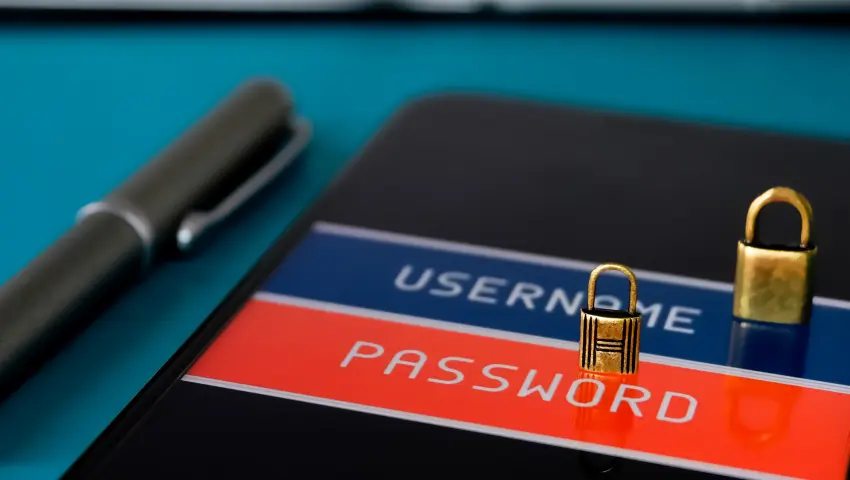
Cybersecurity Best Practices for Small Businesses
In today's digital world, small businesses are prime targets for cyber threats due to limited security infrastructure and awareness. Cyberattacks can lead to data breaches, financial losses, and reputational damage, making cybersecurity a top priority for businesses of all sizes. At POPUP, we provide tailored IT solutions to help small businesses in Qatar
Cybersecurity Best Practices for Small Businesses
In today's digital world, small businesses are prime targets for cyber threats due to limited security infrastructure and awareness. Cyberattacks can lead to data breaches, financial losses, and reputational damage, making cybersecurity a top priority for businesses of all sizes.
At POPUP, we providecustomized IT solutions to help small businesses in Qatar and beyond fortify their cybersecurity defenses. Here’s a practical guide to implementing strong cybersecurity measures for your business.
Table of contents [Show]
- 1. Educate Employees on Cybersecurity Awareness
- 2. Implement Strong Password Policies and Multi-Factor Authentication (MFA)
- 3. Secure Your Network and Devices
- 4. Regular Data Backup and Disaster Recovery Planning
- 5. Protect Business Emails and Communications
- 6. Monitor and Audit Cybersecurity Practices Regularly
- 7. Work with Cybersecurity Experts
1. Educate Employees on Cybersecurity Awareness
Human error is one of the biggest cybersecurity vulnerabilities. Training employees on basic security practices can significantly reduce risks. Best practices include:
- Recognizing phishing scams – Employees should avoid clicking on suspicious emails, links, or attachments.
- Using strong passwords – Implement complex passwords with uppercase, lowercase, numbers, and special characters.
- Avoiding public Wi-Fi for business tasks – Use VPNs when accessing company systems remotely.
Regular cybersecurity training helps create a culture of security awareness within your organization.
2. Implement Strong Password Policies and Multi-Factor Authentication (MFA)
Weak passwords are a major security risk. Businesses should enforce:
✔ Unique passwords for each account – No reusing across platforms.
✔ Password managers to generate and store secure credentials.
✔ Multi-Factor Authentication (MFA) – Adds an extra layer of security through one-time codes, biometrics, or authentication apps.
MFA significantly reduces the risk of unauthorized access to business accounts.
3. Secure Your Network and Devices
Small businesses should strengthen their IT infrastructure by:
- Installing firewalls to block unauthorized access.
- Using endpoint security software (antivirus, anti-malware) on all devices.
- Regularly updating software and operating systems to patch vulnerabilities.
- Restricting access to sensitive data – Only authorized personnel should have access to confidential files.
A well-secured network ensures that cybercriminals cannot easily exploit weaknesses.
4. Regular Data Backup and Disaster Recovery Planning
Data loss can be devastating for small businesses. Implementing a backup and recovery plan is essential. Best practices include:
- Automated backups – Schedule daily or weekly backups of critical data.
- Using cloud storage – Secure and encrypted cloud backups offer protection against data loss.
- Offline backups – Maintain physical backup copies in case of cyber incidents.
A disaster recovery plan ensures quick restoration of business operations in case of cyberattacks or system failures.
5. Protect Business Emails and Communications
Email remains a top attack vector for cybercriminals. Businesses should:
✔ Use professional business email providers (e.g., Google Workspace, Microsoft 365) with security features.
✔ Enable spam filters to block phishing and malware-laden emails.
✔ Verify email senders before clicking links – Look for spoofed addresses.
✔ Encrypt sensitive emails to prevent unauthorized interception.
Strong email security minimizes the risks of phishing attacks, scams, and data leaks.
6. Monitor and Audit Cybersecurity Practices Regularly
Cybersecurity is not a one-time setup—businesses must continuously monitor their security landscape. This includes:
- Conducting regular security audits to identify vulnerabilities.
- Monitoring login activities for suspicious behavior.
- Updating cybersecurity policies to align with evolving threats.
A proactive approach to cybersecurity helps prevent costly breaches before they occur.
7. Work with Cybersecurity Experts
Many small businesses lack in-house IT security teams. Partnering with cybersecurity experts like POPUP ensures:
✅ Comprehensive security assessments tailored to your business.
✅ Implementation of industry-standard security measures.
✅ 24/7 monitoring and rapid response to potential threats.
With expert guidance, small businesses can enhance cybersecurity without disrupting operations.
Why Choose POPUP for Small Business Cybersecurity?
✔ Customized cybersecurity solutions for startups and SMEs.
✔ Advanced security tools for protection against cyber threats.
✔ Affordable and scalable services for growing businesses.
✔ Proactive threat monitoring and response.
✔ Compliance with global and industry security standards.
Want to secure your small business? Contact POPUP today for expert cybersecurity solutions!
Benie Mansueto Vison
Leave a comment
Your email address will not be published. Required fields are marked *
